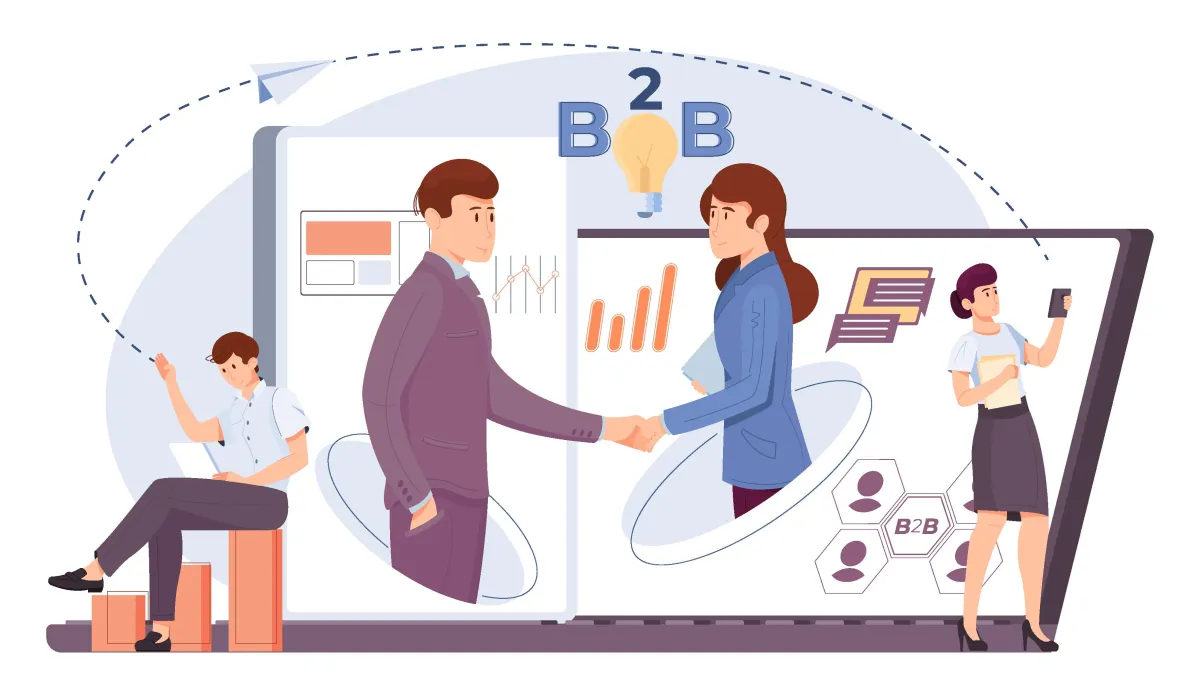

How to Make Your First B2B Sale as a Small Company
Gaining that first B2B client can be a milestone for any small business or startup. It not only validates your product or service but also sets the foundation for future growth. Here’s a step-by-step guide to help you land your first B2B sale:
Identifying the Ideal Client Profile (ICP)
The first step in making your first B2B sale is identifying who you should target. Your Ideal Client Profile (ICP) is a fictional representation of the perfect client for your business. Here’s how to create one:
Industry: Determine which industry your product or service serves best.
Company Size: Identify whether you’re focusing on small, medium, or large enterprises.
Decision-Makers: Pinpoint the roles or titles of individuals who are most likely to make purchasing decisions.
Pain Points: Understand the specific challenges your ICP faces and how your solution addresses them.
Establishing Credibility and Trust
Establishing credibility is crucial in B2B sales. Here are some strategies to build trust:
Professional Website: Ensure your website is professional and up-to-date.
Content Marketing: Publish valuable content such as blog posts, whitepapers, and case studies that demonstrate your expertise.
Social Proof: Use testimonials, reviews, and case studies to show that other businesses trust your product or service.
Leveraging Networking, Referrals, and Partnerships
Your network can be a powerful tool in gaining your first B2B client. Here’s how to leverage it:
Networking Events: Attend industry-specific events to meet potential clients.
Referrals: Ask satisfied customers or business contacts for referrals.
Partnerships: Form strategic partnerships with other businesses that complement your offering.
Tailoring Your Product or Service
To win your first B2B sale, it’s essential to tailor your product or service to meet the specific needs of potential clients. Consider the following:
Customization: Offer customization options to better fit the unique requirements of each client.
Scalability: Ensure that your product or service can scale as the client’s business grows.
Pricing: Develop a flexible pricing model that can accommodate different budgets.
Developing a Compelling B2B Sales Pitch and Proposal
Your sales pitch and proposal need to be compelling and tailored to the prospective client’s needs. Here’s how to create them:
Research: Conduct thorough research on the prospective client’s business and industry.
Value Proposition: Clearly articulate how your product or service solves their pain points.
Presentation: Deliver a professional and engaging presentation, highlighting key benefits and features.
Proposal: Draft a detailed proposal outlining the scope, deliverables, timelines, and pricing.
Negotiating Effectively
Closing your first B2B sale often involves negotiation. Here are some tips to negotiate effectively:
Preparation: Understand your bottom line and be ready to justify your price.
Listening: Listen to the client’s concerns and address them thoughtfully.
Flexibility: Be willing to make concessions on lesser aspects to secure a deal.
Win-Win: Aim for a mutually beneficial agreement that satisfies both parties.
Post-Sale Strategies
Securing the first sale is just the beginning. Post-sale strategies are crucial for nurturing the relationship and ensuring repeat business:
Onboarding: Provide a smooth onboarding process to ensure the client can use your product or service effectively.
Follow-Up: Regularly check in with the client to address any issues and gather feedback.
Value Addition: Continue to offer value through additional services, updates, or resources.
CRM Utilization: Use a CRM (Customer Relationship Management) system to keep track of interactions and manage client relationships efficiently.
Role of CRM in B2B Sales
A CRM system is vital for managing B2B sales processes. It helps you:
Organize client information and interactions.
Track sales leads and progress.
Automate follow-up reminders and tasks.
Analyze sales data to improve strategies.
Best CRM for Small Businesses - Evolve Suite CRM
For small businesses and startups, Evolve Suite CRM is an excellent choice. It offers:
User-Friendly Interface: Easy to set up and use.
Customizable Features: Tailored to fit your specific needs.
Comprehensive Tools: Includes lead management, sales tracking, and analytics.
Cost-Effective: Affordable pricing plans for small businesses.
Concluding Remarks
Making your first B2B sale is a significant milestone for any small business or startup. It requires persistence, continuous improvement, and a strategic approach to targeting, credibility building, networking, tailoring, pitching, negotiating, and nurturing client relationships.
Remember, success in B2B sales doesn’t happen overnight. Stay patient, keep refining your strategies, and leverage tools like Evolve Suite CRM to streamline your processes. Your first B2B client is just the beginning of your growth journey!